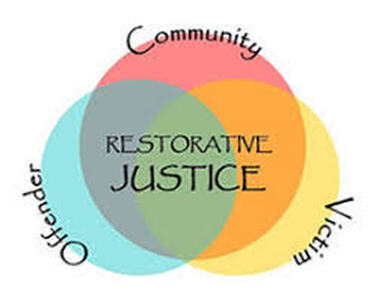 My high school dean silenced me as a 17 year old girl with the exact words, “We already know what you think.” I had gathered a group of female classmates to tell her that the physics teacher was raping our classmate. She was annoyed with me, troublemaker that I am. You can learn more of my story in this blog. When the truth of my allegations came out 30 years later, after an extensive investigation by a law firm, she lost her job at my high school. There had been a culture of abuse, the law firm determined, and the dean had been complicit, so the school let her go.abbyhenrich.weebly.com/community/archives/10-2017 She was immediately hired at a prestigious college. What is the way forward after #MeToo? Should my dean’s career be ruined indefinitely for what she said to me 25 years ago and for her complicity in a culture of abuse and her willful denial? Or should she be forgiven and allowed to continue her work in education? These questions are important: How we heal as individuals and as a society is the significant work before us in this new #MeToo world. Let me begin by telling you what is NOT helpful in this healing process:
What IS helpful? I can only answer this question from my very individual perspective. Recently I have been learning about restorative justice as an alternative to our criminal justice system. At the heart of restorative justice is the involvement of the victim. If someone were to ask me what would restore justice to me after the #MeToo experience I endured at Nichols, I believe I have a clear answer:
That’s it. Face to face listening and an apology. From my perspective this is a simple request. Would it be emotionally exhausting? Yes. Would they be incredibly brave to do it? Yes. Without question. Would it be worth it? I deeply believe it would be. There is no way forward without reconciliation. Reconciliation takes telling and listening. It takes acknowledging pain, asking for forgiveness and offering forgiveness. It takes facing the past together and looking forward to a future. It takes collectively struggling for a new way. I also wonder if I were to come face to face with my dean and headmaster, if we could grieve together for the people we were, trapped in a terrible system. They might have been as trapped as I was and in need of just as much healing. I refuse to accept that they are morally bankrupt humans. Instead, I would guess that both are deeply troubled by what happened and desire a way forward. If I were granted an opportunity for restorative justice with my dean, how would that change my perception of her new position? If she was brave enough to engage with me in authentic conversation and listen with an open heart to my story, I would speak positively about her new beginning. I would remind others that we cannot judge someone solely on their past, and that together, as a community, we must move forward into this new #MeToo world bravely and honestly. Only this way can we create a world where everyone is safe. This is the work of our community. It is not the work of an individual alone in therapy who is told too often to forgive, move on, and get over it. I do not know how this can happen without reconciliation. As the victim, I feel powerless. I am too aware that some do not want to hear me call myself a victim nor admit that I feel powerless, but there it is, my truth. I am too worn out to do anymore of this work on my own. Who will the champion be?
0 Comments
Leave a Reply. |
 RSS Feed
RSS Feed